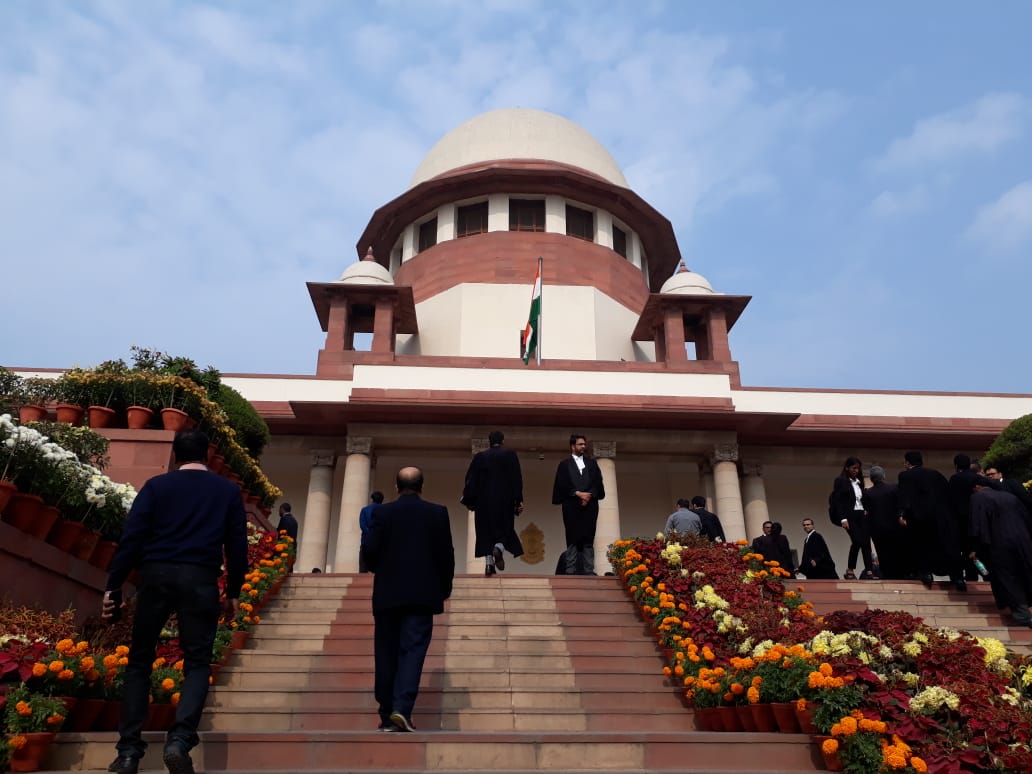


India has witnessed a leap in patent grants and the global South is now emerging as a powerhouse of innovation, Supreme Court judge Justice Sanjiv Khanna said on Thursday during the launch of a WIPO master class on Intellectual Property Adjudication at the Delhi High Court.The master class is being jointly organised by the Delhi High Court and the World Intellectual Property Organisation (WIPO) Judicial Institute.Speaking at the inaugural ceremony, Justice Khanna observed that while Europe and North America accounted for half the global IP filings earlier, this number has now come down drastically. Today, 8 out of 10 global IP filings originate from the global South, he noted.“Global south is emerging as a powerhouse of ideas and innovation. In a span of just a decade, India has witnessed a monumental leap in the grant of patents. To put it in perspective, in 2013-14, a total of 4,227 patents were granted, whereas in the year 2023-2024, the highest number of 41,010 patents were granted - an increase of nearly 10 times. This remarkable surge underscores the growth and innovation of research and development within India,” he said.He also touched upon the new challenges emerging in the field of Intellectual Property Rights (IPR) with the growth of Artificial Intelligence tools, biotechnology and nano-technology. The distinction between physical and digital innovations is fading, he observed.He concluded his address by lauding the collaboration between the WIPO and the Delhi High Court in conducting the IP Master Class, which he termed a significant milestone.Union External Affairs Minister, Dr. S Jaishankar, in a video message observed that India’s engagement with international bodies such as WIPO underscored its commitment in global cooperation in the realm of intellectual property.His address also spoke of the rising trajectory of India in global innovation. India is now among the top innovation economies in the world, he observed. Innovation has been at the forefront of India’s battle against the unprecedented crisis created by the COVID pandemic, he said.“ The Global South was largely reduced to being a consumer, rather than a producer. India’s response to this situation is articulated in the goal of Atmanirbhar Bharat, that is, self reliant India. At its core is the Make In India initiative - one that not only focuses on our own needs, but those of others as well, driven by a strong commitment to make it easier to do business in India. Indeed, the mindset itself is undergoing a transformation - a new India that creates its own 5G stack, which invents and mass produces its COVID vaccine, and which lands near the south pole of the Moon,” he added.He also informed that to ensure that India’s Patents Office keeps up with the spurt of innovation energy in the country, the number of patent examiners are going to be tripled. “It is equally important that our judicial system keeps pace with these increased numbers and scales its own capacity to provide speedy and efficient patent adjudication,” he added.Acting Chief Justice of the Delhi High Court, Justice Manmohan spoke on the challenges faced in protecting IP rights with the rapid advancement of science and technology. “Transactions across borders are concluded at the click of a button and the infringers’ identity and location remains unknown. Thanks to the digital revolution, national boundaries have ceased to have any relevance in the commercial world. The core concept that IP laws are territorial is under serious strain,” he observed.To cite an example, Chief Justice Manmohan referred to the difficulties faced in tackling film piracy.“How do we deal with online piracy ecosystem where the source of infringement, namely the server, is based abroad? The other issue is when you block one website, two more alphanumeric websites prop up. Indian courts, particularly the Delhi High Court, realised that we cannot wait for legislation which deals with online infringement or piracy. We also decided that narrow questions of jurisdiction can’t come in the way of substantive justice. So we devised a concept of dynamic injunction … However, even solutions like these can be mere drops in the ocean as infringing content continues to be available in other jurisdictions,” he said.He proceeded to observe that, “Unless we devise a system of global injunctions or global cooperation, the violation of copyright and the proliferation of piracy will not be matched by the solutions emerging from individual courtrooms.”The opening remarks for the event were rendered by Justice Prathiba M Singh of the Delhi High Court who alluded to the growth of IP cases in India as well in her speech. “We really think that with the amount of intellectual property being registered in India, in terms of trademarks and patents, India is going to see, in the next decade or so, a huge influx of intellectual property cases,” she observed.Eun Joo Min, director the WIPO judicial institute was also among the dignitaries who spoke at the inaugural event. Speaking on the role of courts in bringing clarity to the realm of IPR, she said,“The current rapid pace of technological developments is unprecedented and courts are increasingly on the frontline to provide clear and effective answers for questions that have not yet received a legislative policy response and are establishing important precedents that shape IP law, affect market participants and result in broader socio-economic, scientific and ethical consequences.”She also spoke of the need to promote the cross-pollination of judicial approaches across countries. Such an exchange would help not only in arriving at common solutions when required, but would also help understand why courts depart from the approaches of other courts in foreign jurisdictions, she said.There may be may reasons why different solutions are adopted in different countries. It could be important to articulate and understand these reasons, she said.P Kumaran, Special Secretary of Economic Relations and and Development Partnership Administration of the Union Ministry of External Affairs also delivered a special address at the launch event.
TAGS: Supreme Court Judge India patent grants